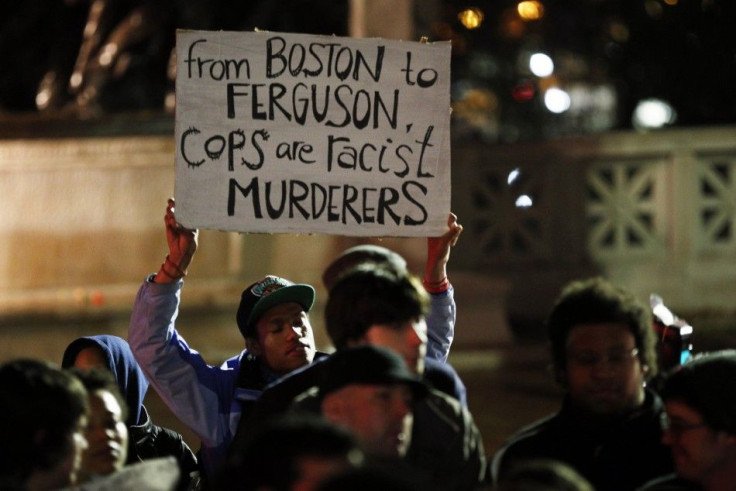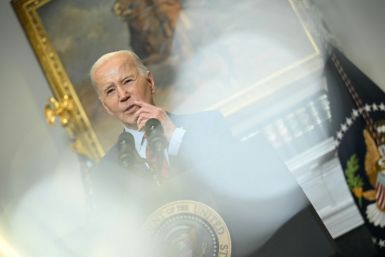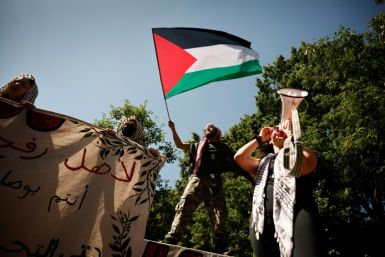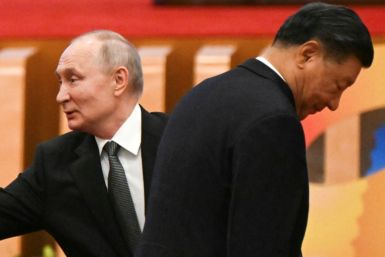White Cops More Hesitant To Shoot Armed Black Suspects Than Whites, Says Study

Notwithstanding the allegations of racial prejudice among the U.S. police forces showcased by the violence on the back of Ferguson shooting of an unarmed black teenager, a new study has thrown up a surprising finding that said the white cops are actually less willing to pull the trigger on armed blacks than their instant response on white suspects.
The findings of the study, led by main author Lois James, a Washington State University-Spokane professor and co-authored by David Klinger, and Bryan Vila were published in the Journal of Experimental Criminology. The results have challenged many previous findings about racial bias and the belief that cops were more trigger happy in targeting black suspects. The authors of the study mainly highlighted the "delay factor" in the cops' reaction. They said it can be the result of a fear about repercussions from shooting a black suspect than a white one, reported Daily Mail.
Simulated Study
The study was conducted at Washington State University-Spokane's Sleep and Performance Research Center and used a realistic simulator, with video images of black, white and Hispanic suspects - both armed and unarmed. The participants were asked to shoot the suspects with a real Glock pistol equipped with laser instead of bullets. The study tested more than 30 cops, 60 civilians and half-a-dozen members of the military. About 85percent of the participants were white. While firing from the Glock pistol, the reaction times and accuracy of the participants were recorded.
The study found that when the cop confronted an armed white suspect, the average response time to pull the trigger was 1.37 seconds. But, in the case of armed blacks, they took 1.61 seconds to open fire. It showed they are unlikely to shoot unarmed black targets. The researchers expressed the concern that such a split-second pause could be deadly in a real life situation. The study also monitored physiological responses to the shooting scenarios and found shooters paused, despite perceiving the black suspects to be a bigger threat than the white suspects.
Lois James, a Washington State University-Spokane professor, who was the lead author told Daily Mail that the results were consistent for police officers, civilians and members of the military. James observed that "what it suggests is-- when faced with black suspects, there is something going on that is causing some kind of pause or hesitation. We think it might be the fear of consequence."
According to her, the consequences could be moral or the fear of backlash including public outcry, criminal charges or departmental action. Given that the US has a history of systemic racism, there are irrefutable facts about the treatment of some groups of people in the criminal justice system and it might be weighing heavily on a lot of officers, James said.
Black Cops Plight
Meanwhile, tensions in the race relations in American society, now exacerbated by the latest incident of a black gunman murdering three New York cops in retaliation to the Ferguson shooting, has added to the anxiety of many African-American police officers. According to RT News report, already there is a record of injustices perpetrated by one police officer against another and it many black cops had been at the receiving end as many a time they were "mistaken" for criminals by their white colleagues. The report said this factor was highlighted in a Task force report of 2010, which was the first ever comprehensive study into the problem.
(The writer can be contacted with feedback at kalyanaussie@gmail.com)






